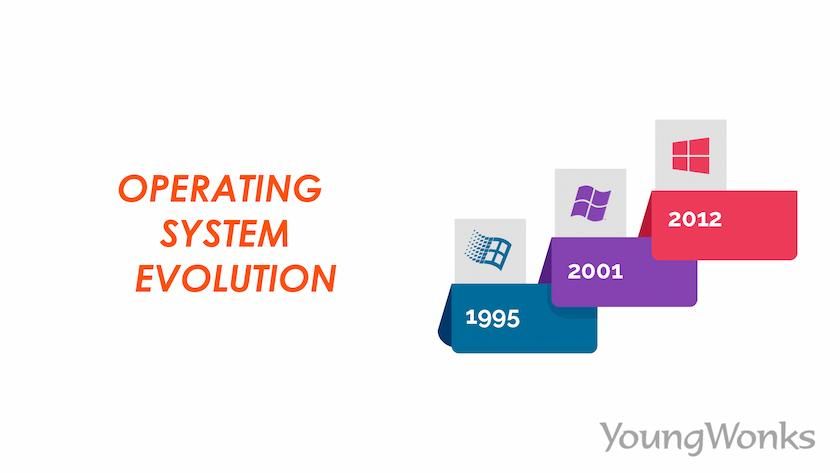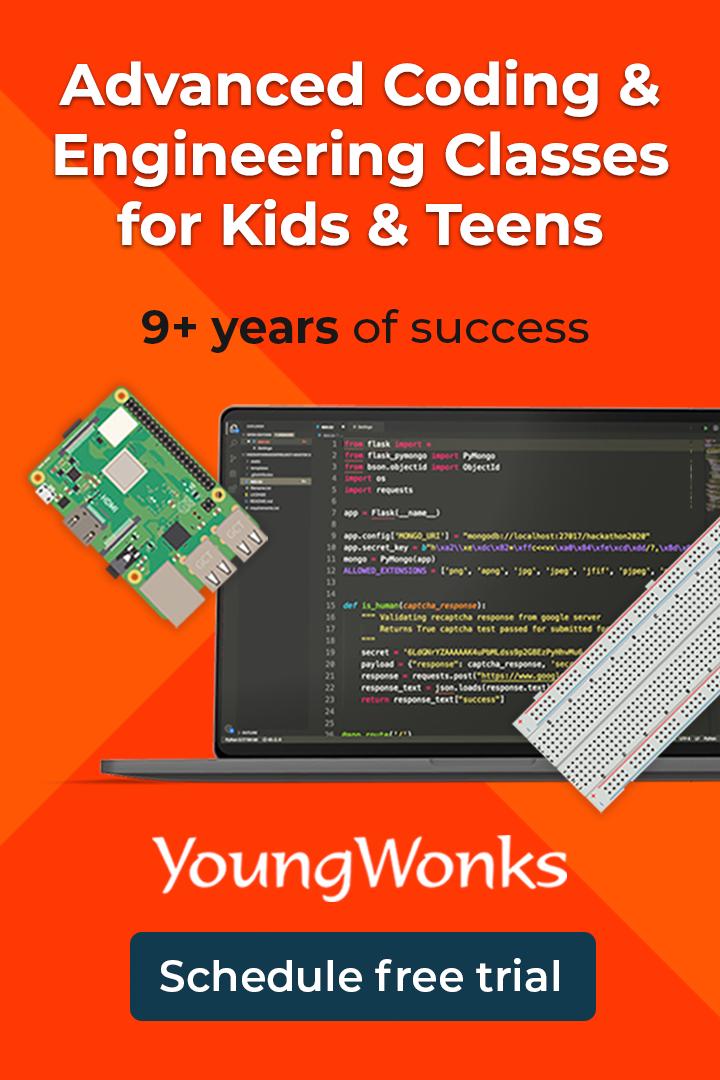Jan 29, 2024 By Team YoungWonks *
Operating systems are like the directors behind the scenes, making sure everything runs smoothly on your computer. In this digital tour, we will delve into the world of operating systems, exploring their evolution from punch cards to the intricacies of modern computing. From multiprogramming to machine language, these systems have shaped the very essence of computer technology. It's not just about the technical stuff; it's also about how these systems have shaped the way we use technology every day. Stick around as we uncover the story of operating systems, from the past to today, and maybe get a glimpse into what's coming next.
The Early Days: Punch Cards and First Operating Systems
The story kicks off in the early days of computers, and back then, punch cards were the real stars. Imagine these cards as a way for people to tell the computer what to do. It was a bit like stacking up a deck of cards with instructions, and programmers had to feed these stacks to the computer, which wasn't the easiest process.
In these early days, the concept of multiprogramming began to emerge, paving the way for the efficient management of computer resources across different programs. They were basically born out of the need to make programming less of a headache. One of the early systems, called the Batch Operating System or the Batch processing system, did a cool thing - it processed a bunch of punch cards all at once, making the whole programming process a bit smoother. This marked the inception of diverse operating systems, showcasing the early seeds of creativity and innovation. As time progressed, this diversity led to the classification of different types of operating systems, each designed to meet specific computational needs.
DOS and Windows: Bringing Graphical User Interfaces to Personal Computers
Let's hop into the 1980s when personal computers started becoming a thing. Microsoft's Disk Operating System (MS-DOS) was like the go-to system for IBM-compatible PCs. Now, MS-DOS might sound a bit techy because it used commands you had to type, but it set the stage for something cool - graphical user interfaces (GUIs).
Then, Windows stepped onto the scene, especially with Windows 95. This was a game-changer because it made using computers way easier for everyone. As Microsoft Windows entered the scene, the graphical user interface revolutionized personal computing, bringing processors and computer hardware to the forefront of user interaction. Think about it like this: before, you had to type commands to get things done, but now you could click on icons and use a mouse. It was like a whole new world of user-friendly computing, and it even let you do multiple things at once. This was a big deal and totally transformed how people interacted with their computers.
Multitasking and Multithreading: Windows XP and Beyond
Let's fast-forward to the era of Windows XP, a big deal in the Windows family. This version took multitasking to a whole new level. Imagine having several apps running at the same time - Windows XP made that happen. Windows XP introduced advanced multitasking and multithreading capabilities, allowing processors to handle multiple tasks simultaneously. Linux and its variants added a new dimension to the landscape of programming languages and system software. It was like a productivity boost because you could do more things at once, making the user experience even better. And here's the techy term for you: multithreading. It's a concept that lets the computer do multiple things within a single process, making everything run smoother and faster.
Linux, inspired by the Unix philosophy, further expanded the landscape of operating systems, introducing time-sharing concepts and influencing the evolution of Macintosh's OS X. Then, there was Ubuntu, a more user-friendly version of Linux. It was like having more choices for how you wanted your computer to run. So, Windows XP and the rise of Linux gave users and developers more flexibility and options to choose from.
Smartphones and Mobile Operating Systems: Android and iOS
Fast forward to the time when computers got even smaller smartphones took the stage, and operating systems had to evolve again. Two big names emerged: Android, made by Google, and iOS, crafted by Apple, the giants in the realm of mobile operating systems, ushered in an era of time-sharing operating systems and redefined the use of peripherals in our daily lives. These became the big shots in the world of mobile operating systems.
These systems brought some really cool stuff to the table. Ever heard of touch-based interfaces? That's when you can just tap and swipe on your phone screen - super easy, right? And there's the app ecosystem. Basically, it's like a fancy term for all the apps you can download and use on your phone. Plus, they introduced real-time operating systems, making everything happen super quickly.
Think about how smartphones became a part of our daily lives. It's like these operating systems adapted to our needs and became super versatile. They made it easy for us to use our phones for everything, from chatting with friends to playing games and even working on the go. It's a whole new world of operating systems that fit right into our pockets!
Distributed and Real-Time Operating Systems
Let's dive into some specialized stuff now. In certain areas, operating systems had to get super specific to meet special needs. First up, we got distributed operating systems. These were like the superheroes of computer networks and big systems. Imagine managing computer resources spread across different computers - these systems made it happen. They were like the brain behind making sure everything in a network played nicely together.
Then, there's the real-time operating systems. These are the go-to guys for situations where time is crucial. Think of places like industrial automation or aerospace, where things need to happen right on the dot. In specialized domains like industrial automation, operating systems took on the role of a computer operator, ensuring seamless coordination and execution of tasks across distributed systems. So, in these specialized domains, operating systems became tailored to handle unique challenges and make sure everything runs smoothly.
Modern Operating Systems: Windows 11, macOS, and Linux Variants
Now, let's talk about the operating systems that are ruling the roost today. In the modern world, we've got Windows 11, macOS, and different flavors of Linux taking the spotlight. These are the big players in the game right now.
What's cool is that these operating systems don't just sit still - they keep getting better. Windows 11, macOS, and various Linux variants continue to evolve, exploring the second generation of user-friendly interfaces and pushing the boundaries of computer system architecture. They're always updating to support new hardware, adding extra layers of security, and finding ways to make your computer run even faster. If you've ever used macOS or Windows 11, you know what we mean by user-friendly interfaces. It's like they're designed to make your whole computing experience smooth and easy. So, in the contemporary landscape, these operating systems are the stars, ensuring that your computer journey stays top-notch.
Memory Management and Virtualization
Let's zoom in on something super important in the evolution of operating systems - memory management. This has been a game-changer. Imagine your computer having a super smart way of using memory. That's where virtual memory comes into play. It's like the computer can use some space on your disk as if it is extra brainpower, making sure things run super efficiently. Memory management techniques, including floor division and file systems, contribute to the efficiency of modern operating systems. Virtualization introduces0 the concept of multiprocessing within a single machine, elevating the capabilities of CPUs.
And then, there's virtualization. This tech is like the rockstar of computing. It lets you create virtual machines - basically, it's like having multiple computers inside your computer. This brings a whole new level of flexibility to the table. It's like the operating system is saying, "Hey, I can do more than one thing at a time and do it really well." So, memory management and virtualization are like the superheroes behind the scenes, making sure your computer runs like a well-oiled machine.
Security and Permissions: Safeguarding System Resources
Let's talk about something crucial in the world of operating systems - security and permissions. As computers started connecting to each other through networks and the internet, keeping everything safe became a top priority. That's where modern operating systems stepped up their game.
They've got these fancy permission systems now. It's like giving certain levels of access to users and programs. Think of it as having different keys to different rooms in a building - only the right keys get you in. Security measures, akin to system programs, have become crucial components of contemporary operating systems, safeguarding against potential threats and unauthorized access. And here's the techy part: system calls and context switching mechanisms. They're like the guardians of the system, managing resources and making sure everything stays secure. So, in this age of interconnected computers, operating systems are like the security experts, making sure your digital space is locked down tight.
The Future: Algorithms, New Systems, and Beyond
Peering into the future of operating systems unveils an exciting landscape marked by continuous evolution. The heartbeat of this evolution is a relentless focus on optimizing algorithms, a key driver behind enhanced system performance. Picture operating systems as wizards refining their spells, ensuring that every task is executed with maximum efficiency. Security protocols take center stage in this ongoing saga, evolving to combat ever-advancing cyber threats. It's like the operating systems are donning high-tech armor, shielding your digital realm from potential intruders.
As technology leaps forward, operating systems are poised to embrace new systems crafted to meet the evolving needs of users. It's akin to creating a toolbox with specialized tools for cutting-edge technologies like quantum computing and artificial intelligence. These emerging paradigms open up new realms of possibility, demanding operating systems to be not just adaptive but visionary. The future unfolds as a canvas where operating systems paint the portrait of efficiency, security, and seamless integration with the technologies that lie ahead. It's a digital odyssey, and operating systems are the navigators charting a course toward the next frontier of computing excellence.
Conclusion
In conclusion, the captivating journey through the evolution of operating systems unveils the ever-changing tapestry of computing. It's a narrative that spans from the humble punch cards to the sleek sophistication of smartphones, with each phase contributing innovations that have left an indelible mark on our interaction with computers. As we cast our gaze toward the horizon, it's evident that the evolution of operating systems will continue to be a driving force, sculpting the very contours of the computing landscape. The algorithms orchestrating resource allocation and the user interfaces molding our digital experiences stand as testament to the enduring centrality of operating systems in the dynamic realm of technology. As we gaze toward the future, exploring algorithms and the history of operating systems, we anticipate a dynamic landscape where processors, computer hardware, and advanced programming languages continue to shape the narrative of computing excellence.
Comprehensive Learning for Kids
At YoungWonks, we understand the importance of staying abreast of technological advancements. Our Coding Classes for Kids are designed to equip the younger generation with the necessary skills to navigate this rapidly evolving landscape. For instance, our Python Coding Classes for Kids offer in-depth understanding and practical experience in one of the most popular, highly versatile programming languages today. Additionally, we offer specialized Raspberry Pi, Arduino and Game Development Coding Classes to ensure our students are well-versed in various aspects of programming and hardware interfacing. The evolution of operating systems is just one of many fascinating topics we explore, underscoring our commitment to providing comprehensive, future-forward education.
*Contributors: Written by Prarabdh Joshi; Edited by Rohit Budania; Lead image by Shivendra Singh

